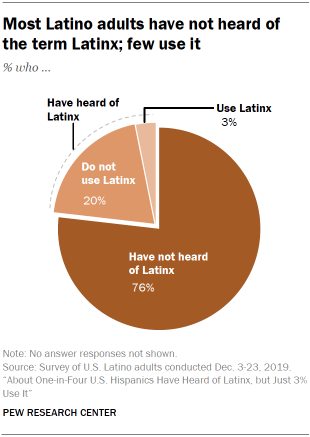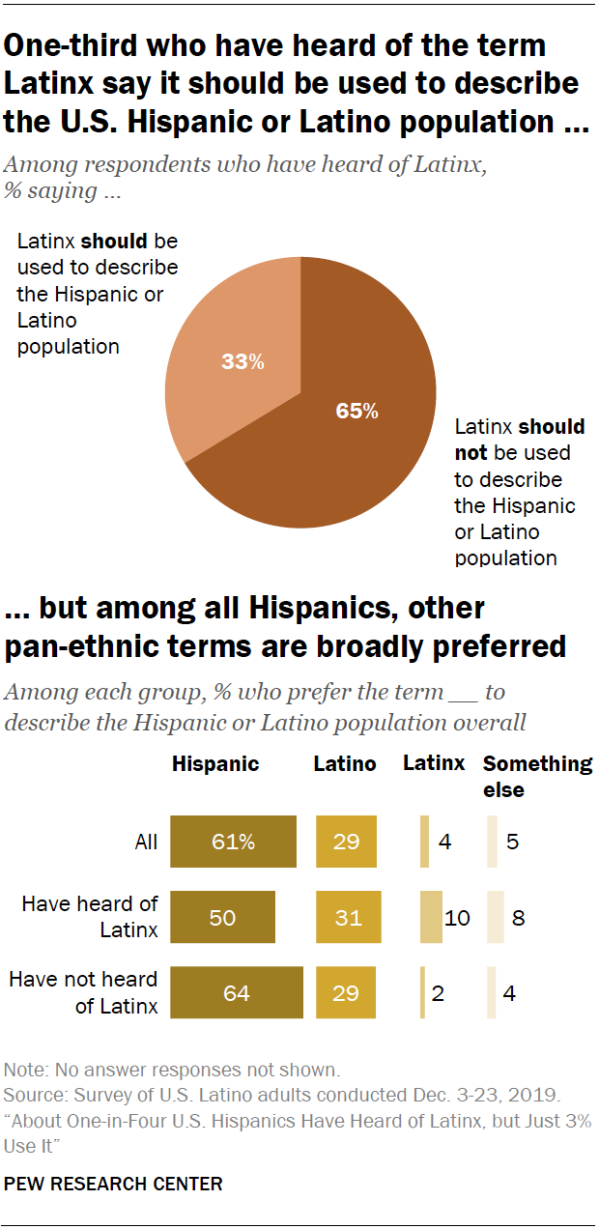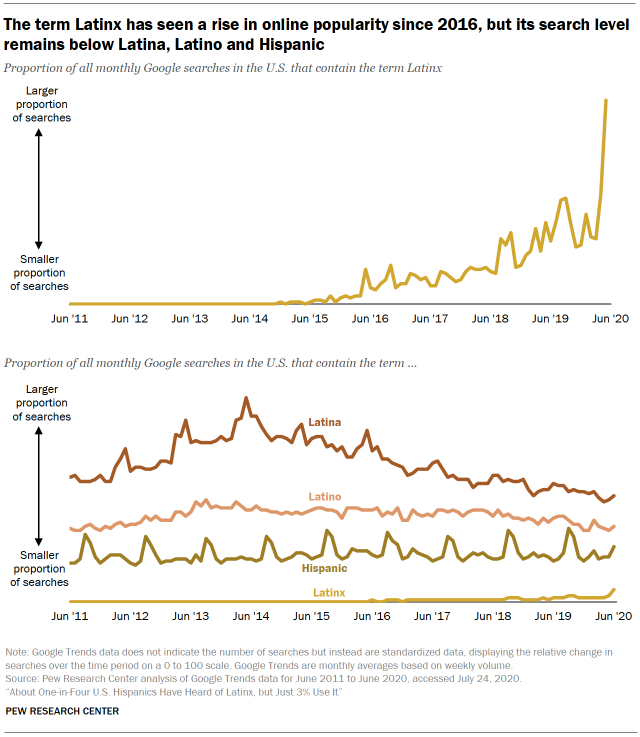Have you heard the term, Latinx? No? Well, you’re not alone.
A new study by the Pew Research Center (PRC) found only 23-percent of people in the U.S. self-identifying as Hispanic or Latino have heard of the term Latinx. Only 3-percent describe themselves as Latinx.

The findings demonstrate how complex identity is for people categorized as Hispanic or Latino. “This reflects the diversity of the nation’s Hispanic population, and the Hispanic population of the US thinks of itself in many different ways,” Mark Lopez, director of global migration and demography research at Pew Research Center, told CNN. “‘Latinx’ is just one of those many dimensions.”
“Hispanic” and “Latino” are often used interchangeably to refer to people of Spanish-speaking or Latin American origin. “Hispanic” is associated with language (a person from a Spanish speaking country) and “Latino” with geography (a person from a Latin American country). A Spaniard is considered a Hispanic, but not Latino. A Brasilian is considered a Latino, but not Hispanic. Get it?
Latinx is a gender-neutral and inclusive alternative to Latino or Hispanic, particularly for people who identify as LGBTQ+. According to the PRC report, Latinx has been around for about 20 years, but it’s only recently — in the last five or six years— that it’s been used widely in the news media, in pop culture, and by corporations.

Among those who had heard of Latinx, 33% said it should be used to describe the Hispanic or Latino population, while 65% said it should not be used. Researchers also found that people in the United States still prefer to self-identify as “Hispanic” (61%) followed by “Latino” (29%) or their country of origin.
Preference for Latinx as a pan-ethnic term is higher among those who are aware of it – 10% in this group say they prefer Latinx. Yet even among those aware of Latinx, the terms Hispanic (50%) and Latino (31%) are preferred.
According to a report by NPR’s Code Switch, when it comes to the labels that people want to use to describe themselves, more often than not, they prefer their country of origin. That’s true particularly of immigrants, but it’s also true even of U.S.-born Hispanics or Latinos who are the children of U.S.-born parents.
There are about 850,000 Latinos in Massachusetts, comprising 12 percent of the state population.
Google searches for Latinx are rising in the United States, but trail far behind Latina, Latino, and Hispanic, according to the study.
The relative popularity of Latinx in online searches in the U.S. has increased since 2016. While its earliest Google searches extend back to the early 2000s, the highest monthly relative number of searches for Latinx occurred in June 2020, surpassing a previous peak in October 2019.

PRC interviewed 3,030 U.S. Hispanic or Latino adults, ages 18 to 65 and older, in December 2019. The survey was conducted bilingually and was “nationally representative,” Pew said.




